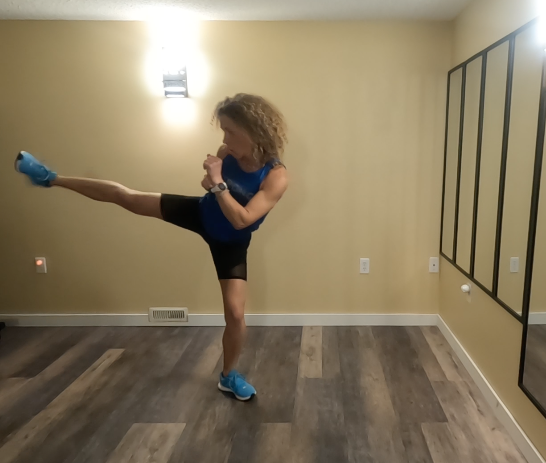Slowing down age-related muscle loss
Age-related muscle loss
Age-related muscle loss can be diminished with regular physical activity and proper nutritional choices
You know the saying about muscles: use it or lose it. It’s true.
Starting in our 40s, we start losing muscle mass, strength and function. The good news is that we can slow it down with regular physical activity and nutrition choices.
Sarcopenia refers to the loss of skeletal muscle function, including strength. For healthy aging adults, sarcopenia results in a gradual but progressive 3 to 8 percent loss in muscle mass per decade. The causes of sarcopenia may include a sedentary lifestyle, nutritional deficiencies, hormonal changes, and the body producing fewer proteins. Adults who do not do strength training regularly can lose 4 to 6 pounds of muscle per decade.
Fortunately there are ways to combat age-related muscle mass loss. A regular resistance training routine combined with consuming sufficient high-quality and leucine-rich protein throughout the day is the best way to maintain and improve skeletal muscle mass and function with advancing age.
It is important to eat a varied diet, but in general, animal sources of protein provide a higher quality and quantity of protein, compared to plant sources. Animal protein (such as beef, dairy, eggs, and fish) and the protein in soy foods, quinoa is considered high-quality or complete proteins because they provide all nine essential amino acids.
Emphasize protein foods naturally rich in the amino acid leucine, such as beef, soy, cheese, poultry, fish, and nuts. Leucine is known to stimulate muscle protein synthesis.
Most plant-based proteins have a limited amount of one or more essential amino acids and lower protein digestibility scores due to the higher fibre and other anti-nutritional factors present in the plants. If you eat little to no animal-based foods, it is vital to combine plant-protein options such as beans, nuts, lentils, whole grains, and vegetables throughout the day along with some complete protein sources tofu, edamame, quinoa to get a balance of essential amino acids.
Healthy adults should aim for 1.2–1.5 g/kg of BW/day of high quality protein to slow age-related muscle loss, maximize athletic performance and improve satiety.
To maximize muscle protein synthesis, it is recommended to consume 25 to 30 g of high-quality protein per meal. Muscle protein synthesis in older adults may be blunted in meals with less than 20 g of protein. Fill your plate with some of these nutritious foods: fish, chicken, beef, eggs, yogurt, cheese, nuts and seeds - chia, hemp, etc,, nut butters, oatmeal, quinoa,lentils, fresh veggies, berries,
Conclusion: a combination of resistance exercise and a diet with protein-rich foods can help slowing down age-related muscle loss. The earlier we start, the stronger we will be.
**Disclaimer: For informational purposes only. All opinions expressed are my own personal thoughts, based on my personal research as a Fitness Trainer and Healthy eating coach. Use it at your own discretion.

